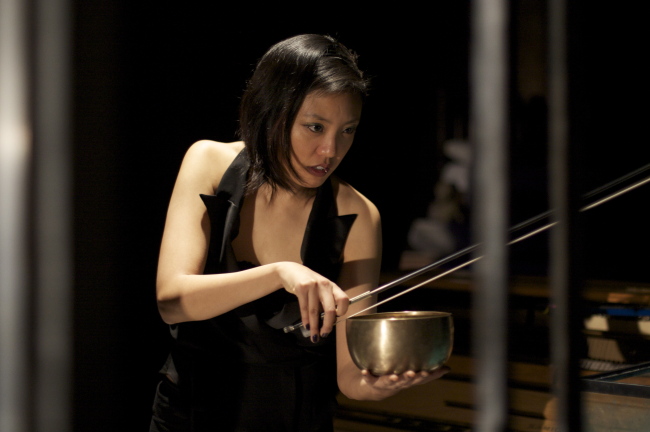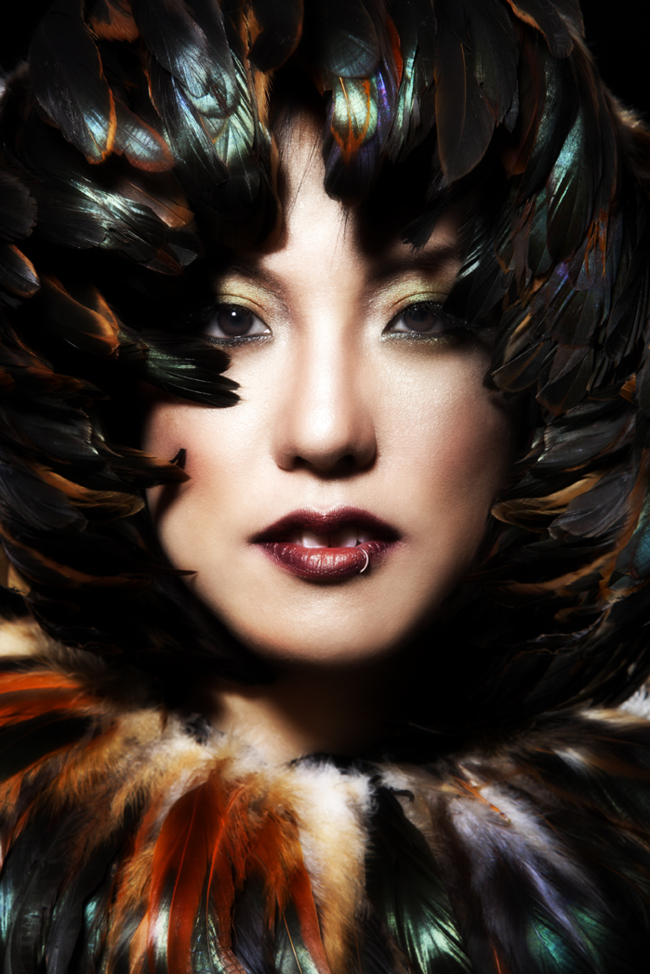Korean-American star on the rise
2014-02-19 19:24
 |
| Bora Yoon performing. (www.borayoon.com) |
When Korean-American musician Bora Yoon began to discover more about her Korean heritage, there was one thing in particular that stood out to her.
“My parents are from Jeolla Province, where pansori, a traditional Korean folk performance, originated. The more I started researching this music, the more I started to wonder about the music that I make, and I began to think to myself, ‘Bora, are you just making your own elaborate version of pansori?’” she said in a recent phone interview with The Korea Herald.
Born in Chicago in 1980, Yoon’s classical music training began at a young age. The contemporary edge that her current music is so well known for did not emerge until later, but has close ties with her early training.
“My curiosity stemmed from learning my musical vocabulary from classical work, and I began to play these instruments that had transferable skills. A violin can become a guitar if you adapt it, and piano can become percussion if you don’t use a keyboard.”
 |
| Bora Yoon. (www.borayoon.com) |
Yoon’s work is entirely self-composed, which may seem fairly normal until you consider the objects she uses as instruments.
With everything from pedestal fans to Tibetan singing bowls in her instrumental repertoire, Yoon’s use of unconventional instruments and found objects lends a paradoxical earthiness to her ethereal performances. When a lengthy choral arrangement is accompanied by the tones of a Samsung cell phone, it seems strangely fitting.
“I think of the creative mind as a junkyard of ideas, and when I am writing and composing, I revisit the sound design junkyard and mix and match the sounds and ideas that live there,” she said.
“I fold these unusual sounds into more traditional forms of music, so I’m blending melody, harmony and sound design to make something brand new.”
The desire to make something new and step outside the limitations of conventional music is a guiding force in Yoon’s work, and her voice lit up as she explained why her music was so much more than just a collection of sounds.
“Music and performance is about getting the synapses firing and creating an experience. I see the body as a space of composition, so my music is quite literally a body of work,” she said.
“I’m creating a holistic journey for listeners and I want them to leave transformed. I think the role of art is to provide a few tingles!”
Yoon will be providing more than just a few tingles when she performs and speaks at the 2014 TED Conference in March this year.
Standing for Technology, Entertainment and Design, the TED Conference is an annual series of lectures that cover a range of topics from education and architecture to neuroscience and cartoons. This year is the 30th anniversary of the TED conference, and theme is “The Next Chapter.”
Being elected a TED fellow in the 30th anniversary year is no mean feat, and Yoon joins a class of 21 young innovators and leaders in their fields who are changing the way people think about technology, entertainment and design.
Having the chance to deliver one of the famous TED Talks is rare, and vaults the speaker into a group that includes the likes of Bill Gates, Stephen Hawking, Hans Rosling and Gordon Brown. Not that Yoon is worried.
“I’m excited. Sometimes I feel that people are only able to see one side of me and to them I’m only a speaker or I’m only a performer. At TED I get to do both.”
When asked about her favorite TED Talks, Yoon gives an answer not wholly unexpected for someone who can turn the rhythm of her feet on the sidewalk into a symphony.
“There is one that I think is particularly great. Elizabeth Gilbert (author of ‘Eat, Pray, Love’) has a really great TED Talk about genius. She was able to articulate something that is very hard to articulate: the creative energy that people struggle with.”
Lately Yoon has been reflecting on her own creative energy, and finding that her Korean heritage has a large role to play.
“I have a growing curiosity about my own heritage, and I’ve found that there are larger things that can be said through your blood identity. I’ve begun to wonder whether my music is a way for my blood to speak louder than my will. Creativity is always reflective of its source. It’s about where you come from and how you came to be,” she said.
Yoon is releasing her new album called “Sunken Cathedral” in April, and has been working closely with two Korean artists throughout the production process.
Choe U-Ram, a Korean artist who works in both Seoul and New York, will be providing a visual edge to Yoon’s album.
“I connected with U-Ram to feature his artwork in music videos that I will be releasing,” she explained. “It’s basically footage of his artwork scored by my music.”
Yoon’s serendipitous connection to pansori has continued with her second Korean collaboration.
“I’ve been working with Vong Pak here in New York, he’s a traditional Korean drummer and dance artist from Korea and he has actually performed in pansori,” she said.
“Between the three of us, I’m interested in chasing this ancient culture and demonstrating how all things are cyclical. Although they may accelerate and become very technologically advanced, there are always parts of us that are rooted in history and in the past.”
Bora Yoon will be speaking and performing at the 30th annual TED conference in Vancouver, Canada from March 17 to 21. Her album, “Sunken Cathedral,” will be released in April 2014.
By Kate Bolster (kbolster@heraldcorp.com)


